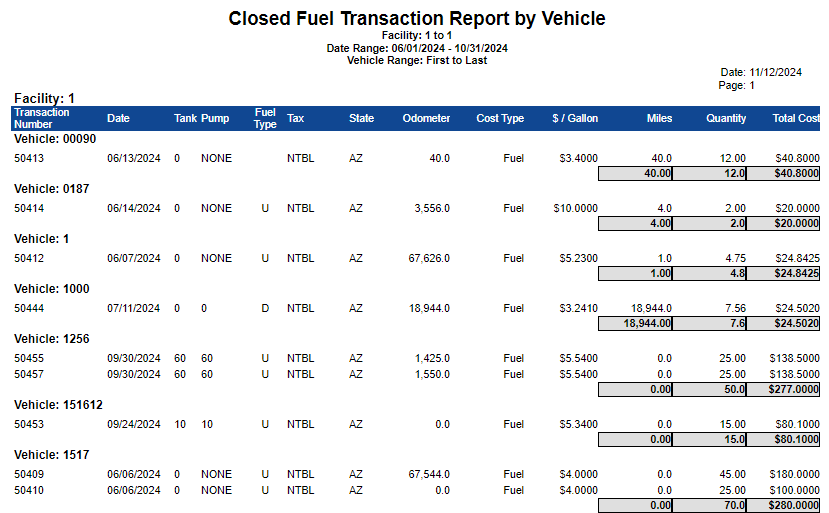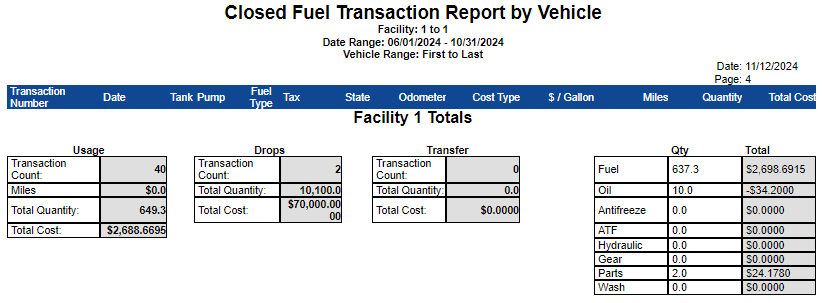Closed Fuel Transactions by Facility and Vehicle
Summary/Use Case
Report Summary
The Closed Fuel Transactions by Facility and Vehicle report provides detailed information on fuel transactions, organized by facility and vehicle. This report is beneficial for fleet managers to monitor fuel costs, usage, and transactions over a specific period, enabling effective fuel expense management.
Use Case
Track fuel usage and expenses by vehicle and facility to manage fuel budgets
Identify vehicles with higher fuel consumption for potential maintenance or optimization
Audit fuel transaction history for any discrepancies or unusual usage patterns
Allocate fuel expenses accurately to departments or facilities based on recorded usage
Location: Where to Find It
Reports > RTA Standard Reports > Fuel > Closed Fuel Transactions by Facility and Vehicle
Data Filter Prompts
You will be prompted for filtering of the Data to specify and narrow down the data that will be pulled. See Data Filter List Below for Options.
Data Filter List
Filter Name | Recommended Filter Condition(s) | Value (Options) | Value (Default) |
|---|---|---|---|
Facility | Is Between | 1 to 99999 | 1 to 1 |
Date Range | Is Between | Any Date Range | First Day and Last Day of Previous Month |
Vehicle | Is Between | blank to zzzzzzzzz | blank to zzzzzzzzz |
Report Output and Data Elements
Once the Closed Fuel Transactions by Facility and Vehicle report runs, it displays a detailed list of fuel transactions organized by facility and vehicle. Key data points include transaction date, vehicle odometer reading, cost per gallon, and total transaction cost. Each facility has a totals page summarizing metrics such as transaction count, miles, fuel quantity, and total cost, broken down by usage, drops, and transfers.
Report Output
Report Output - Facility Totals Page
Report Data Elements
Column Number | Column Title | Data Notes |
|---|---|---|
1 | Transaction Number | Unique identifier for each fuel transaction. |
2 | Date | Date of the fuel transaction. |
3 | Tank | Tank number associated with the transaction. |
4 | Pump | Pump number used for the transaction. |
5 | Fuel Type | Type of fuel used (e.g., NTBL, U for unleaded). |
6 | Tax | Tax applied to the fuel transaction. |
7 | State | Location state where the transaction occurred. |
8 | Odometer | Vehicle odometer reading at the time of transaction. |
9 | Cost Type | Type of cost associated (Fuel, Oil, etc.). |
10 | $ / Gallon | Cost per gallon of fuel. |
11 | Miles | Miles traveled, if applicable. |
12 | Quantity | Quantity of fuel purchased. |
13 | Total Cost | Total cost of the transaction. |


